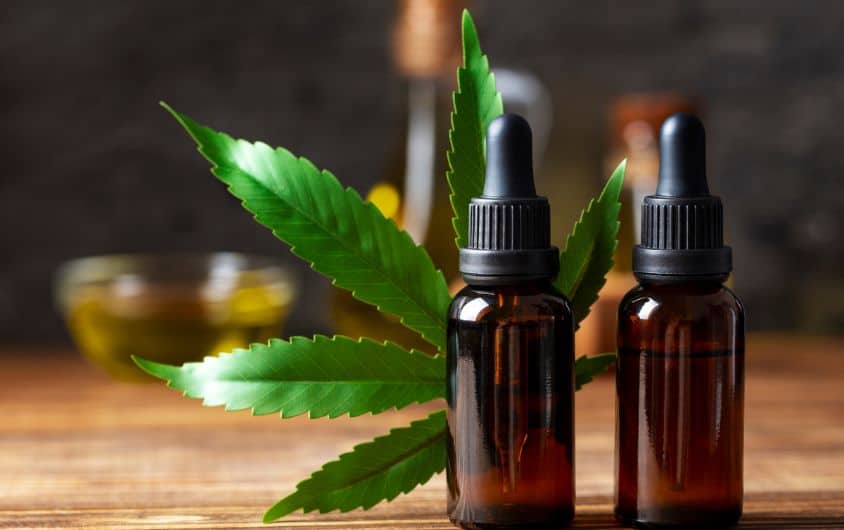In New York, the evolving landscape of medical marijuana presents a novel approach to managing insomnia, a condition affecting many. The state’s Office of Cannabis Management oversees the regulation of medical marijuana, ensuring safe and controlled access.
This regulatory framework is part of the Marijuana Regulation and Taxation Act, which also emphasizes social justice and public health. With New York’s progressive stance, medical marijuana emerges as a promising alternative for those struggling with insomnia, offering a natural and potentially effective treatment option.
This blog delves into how medical marijuana can aid in treating insomnia, backed by New York’s robust regulatory and social equity programs. It’s a must-read for anyone in New York seeking alternative treatments for sleep disorders, providing insights into the legal, practical, and health aspects of using medical marijuana for insomnia.
Table of Contents
ToggleIntroduction to Insomnia and Medical Marijuana in New York
What is Insomnia and How Common is it in New York?
Insomnia, a prevalent sleep disorder, is characterized by difficulty in falling asleep, staying asleep, or experiencing restorative sleep. In New York City, insomnia has become a significant concern, especially among healthcare workers.
A study conducted during the peak of the COVID-19 pandemic in New York City revealed that a staggering 72.8% of healthcare workers reported insomnia symptoms. This high prevalence is indicative of the broader issue of insomnia in the city’s population, exacerbated by factors like stress, lifestyle, and environmental noise.
How Has Medical Marijuana Emerged as a Treatment Option in New York?
In New York, medical marijuana has emerged as a viable treatment option for various conditions, including insomnia. The state’s Marijuana Regulation and Taxation Act has established a comprehensive regulatory framework for the licensure and distribution of medical marijuana.
This framework ensures product safety and quality, making medical marijuana a reliable option for patients seeking alternative treatments. The Office of Cannabis Management in New York plays a crucial role in administering these regulations, ensuring that medical marijuana is accessible to those who need it, including individuals with insomnia.
Understanding Medical Marijuana
What is Medical Marijuana and How Does it Work?
Medical marijuana refers to the use of the Cannabis sativa plant or its extracts to treat symptoms of illness and other conditions. The primary active components of cannabis are cannabinoids, which interact with the endocannabinoid system in the human body.
This system plays a key role in regulating a range of physiological processes, including sleep, mood, appetite, and pain sensation. The interaction of cannabinoids with the endocannabinoid system can help alleviate symptoms of various conditions, including insomnia, by promoting relaxation and reducing anxiety.
Which Components of Medical Marijuana are Effective for Sleep?
The effectiveness of medical marijuana for sleep is primarily attributed to two cannabinoids: THC (tetrahydrocannabinol) and CBD (cannabidiol). THC is known for its psychoactive effects and can induce sleepiness, which may be beneficial for people with insomnia.
CBD, on the other hand, is non-psychoactive and is known for its calming effects. It can help reduce anxiety and improve sleep quality. The combination of these cannabinoids in varying ratios can be tailored to meet the specific needs of individuals with insomnia, providing a personalized approach to treatment.
Medical Marijuana and Insomnia Treatment
How Can Medical Marijuana Help in Treating Insomnia?
Medical marijuana, particularly its components THC (tetrahydrocannabinol) and CBD (cannabidiol), has shown potential in treating insomnia. THC is known for its sedative effects, which can help initiate sleep, while CBD is recognized for its ability to reduce anxiety and promote relaxation, contributing to better sleep quality.
The interaction of these compounds with the body’s endocannabinoid system, which regulates various physiological processes including sleep, can help in restoring balance and aiding in better sleep patterns.
What Research Supports the Use of Medical Marijuana for Insomnia?
Recent studies have provided evidence supporting the use of medical marijuana for insomnia. A large case series published in ‘The Permanente Journal’ on the use of CBD for anxiety and sleep indicated that CBD could help improve sleep and reduce anxiety. The study found that sleep scores improved within the first month for 66.7% of patients, although the results fluctuated over time. This research underscores the potential of CBD, a key component of medical marijuana, in managing sleep-related issues.
How Does Medical Marijuana Compare To Traditional Sleep Aids for Insomnia?
Compared to traditional sleep aids, medical marijuana offers a different mechanism of action, interacting with the body’s endocannabinoid system. While traditional sleep medications often work on the brain’s GABA receptors to induce sleep, medical marijuana’s components, THC and CBD, have distinct effects on sleep and anxiety. THC can induce sleepiness, whereas CBD is known for its anxiolytic and calming properties.
Moreover, medical marijuana may present fewer side effects and lower risks of dependency compared to some conventional sleep medications. However, it’s important to note that the efficacy and safety of medical marijuana as a sleep aid can vary among individuals, and more research is needed for a comprehensive understanding.
Legal and Regulatory Aspects in New York
What are the Legal Regulations Surrounding Medical Marijuana in New York?
In New York, the legal landscape for medical marijuana is governed by the Marijuana Regulation and Taxation Act. This act establishes a comprehensive regulatory structure for the licensure, cultivation, production, distribution, sale, and taxation of medical marijuana within the state.
The Office of Cannabis Management oversees these regulations, ensuring that medical marijuana products are safe for consumers and not targeted to youth. The act also includes provisions for social and economic equity, encouraging participation from communities disproportionately impacted by previous prohibition policies.
How Has New York’s Stance on Medical Marijuana Evolved for Insomnia Treatment?
New York’s stance on medical marijuana has evolved significantly over the years, especially regarding its use for treating conditions like insomnia. The state has recognized the potential therapeutic benefits of medical marijuana for various conditions, including sleep disorders. This recognition is reflected in the regulatory framework that facilitates access to medical marijuana for patients with conditions like insomnia, under the guidance of a certified healthcare provider.
Obtaining Medical Marijuana in New York
How Can Individuals in New York Obtain Medical Marijuana for Insomnia?
Individuals in New York can obtain medical marijuana for insomnia through a streamlined process. Patients must consult with a healthcare provider who is registered with the New York State Medical Marijuana Program. If the provider determines that the patient could benefit from medical marijuana, they will issue a certification. Patients no longer need a traditional medical marijuana card; the certification itself allows them to purchase medical marijuana from a registered dispensary in New York.
What is the Process of Getting a MMJ Certification in New York?
The process of obtaining a Medical Marijuana (MMJ) certification in New York involves several steps:
- Consultation with a Registered Provider: Patients must first consult with a healthcare provider registered with the New York State Medical Marijuana Program. This consultation typically involves discussing the patient’s medical history and current symptoms.
- Certification Issuance: If the healthcare provider determines that the patient’s condition could benefit from medical marijuana, they will issue a certification. This certification will include the patient’s approved form and dosage of medical marijuana.
- Purchasing Medical Marijuana: With the certification, patients can visit any registered dispensary in New York to purchase medical marijuana. The dispensary staff can assist patients in selecting the appropriate product based on their certification.
- Follow-up and Monitoring: Patients are advised to maintain regular follow-up appointments with their healthcare provider to monitor the effectiveness of the treatment and make any necessary adjustments.
It’s important to note that the process is designed to ensure that patients receive medical marijuana safely and legally, with the guidance of a healthcare professional. The New York State Department of Health provides comprehensive information and resources for patients and providers participating in the Medical Marijuana Program.
Usage and Dosage
How Should Medical Marijuana be Used for Treating Insomnia?
Medical marijuana, particularly CBD (cannabidiol) and THC (tetrahydrocannabinol), has been found effective in treating insomnia. CBD is known for its calming effects, which can alleviate anxiety and improve sleep quality. THC, on the other hand, has sedative properties that can help in initiating sleep. For treating insomnia, it is crucial to find the right balance between these compounds. The method of consumption (smoking, vaping, edibles, oils, etc.) and timing (evening or before bedtime) also play a significant role in its effectiveness for sleep disorders.
What are the Recommended Dosages and Strains for Insomnia Patients?
The recommended dosages and strains for insomnia patients vary based on individual needs and tolerance levels. Generally, strains with higher CBD content are preferred for their non-psychoactive and calming effects. Indica strains are often recommended for sleep due to their relaxing properties. As for dosages, it is advisable to start with a low dose and gradually increase it until the desired effect is achieved. It’s important to consult with a healthcare provider to determine the appropriate strain and dosage. According to Harvard Health, patients report benefits of CBD for relieving insomnia, anxiety, and pain, which are critical factors in sleep management.
Safety and Side Effects
What are the Potential Side Effects of Using Medical Marijuana for Insomnia?
Using medical marijuana for insomnia can be effective, but it’s important to be aware of potential side effects. According to the Mayo Clinic, possible side effects of medical marijuana include increased heart rate, dizziness, impaired concentration and memory, slower reaction times, and negative drug-to-drug interactions. There’s also a risk of increased appetite, potential for addiction, hallucinations, or mental illness, and withdrawal symptoms. It’s crucial to note that some medical marijuana formulations are designed to provide symptom relief without the intoxicating effects associated with recreational use.
How Can Patients Safely Use Medical Marijuana?
For patients to safely use medical marijuana, especially for insomnia, several guidelines should be followed:
- Consultation with Healthcare Provider: Before starting medical marijuana, consult with a healthcare provider knowledgeable in its use for insomnia. This ensures that it’s appropriate for your specific condition and helps in determining the right strain and dosage.
- Start with Low Dosages: Begin with a low dose and gradually increase it as needed. This approach helps in minimizing potential side effects and finding the effective dose for your symptoms.
- Monitor for Side Effects: Be vigilant about any side effects you experience and report them to your healthcare provider. This includes monitoring for any signs of dependency or adverse reactions.
- Avoid Operating Machinery: Due to potential effects on concentration and reaction times, avoid operating heavy machinery or driving when using medical marijuana.
- Check Legal Status: Ensure you are compliant with state laws regarding the use and possession of medical marijuana.
- Store Safely: Keep medical marijuana in a safe place, out of reach of children and pets.
- Follow the Recommended Administration Method: Use the administration method (such as vaping, edibles, oils) recommended by your healthcare provider to ensure effective treatment.
By following these guidelines, patients can use medical marijuana more safely and effectively, particularly for managing insomnia. It’s essential to maintain open communication with your healthcare provider throughout the treatment process.
Conclusion
In New York, medical marijuana has emerged as a promising alternative for treating insomnia, offering a natural solution for those struggling with sleep disorders. With its active components, THC and CBD, medical marijuana interacts with the body’s endocannabinoid system, aiding in relaxation and sleep initiation.
The state’s comprehensive regulatory framework, overseen by the Office of Cannabis Management, ensures safe access to quality medical marijuana products. For New Yorkers grappling with insomnia, medical marijuana, under proper guidance and certification, presents a viable option, potentially improving sleep quality and overall well-being.
Addition Resources
https://www.ncbi.nlm.nih.gov/pmc/articles/PMC9067069/
https://www.ncbi.nlm.nih.gov/pmc/articles/PMC9036386/
https://www.healthline.com/health/medical-marijuana/cannabis-for-sleeping
https://www.nytimes.com/2023/03/07/well/cannabis-weed-sleep-aid.html





